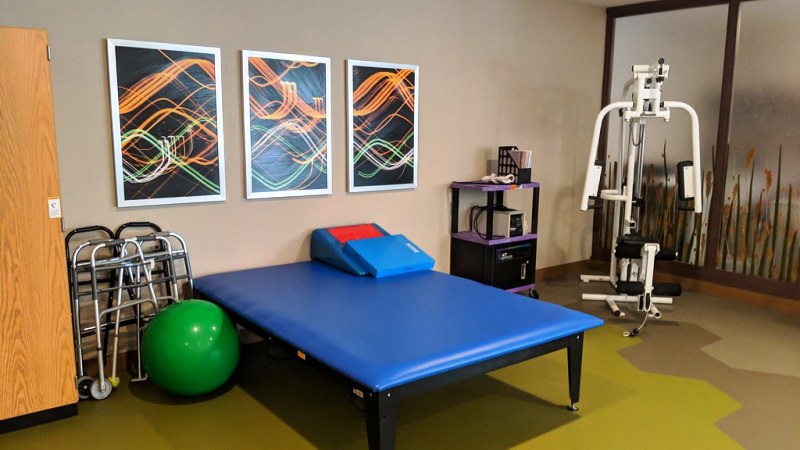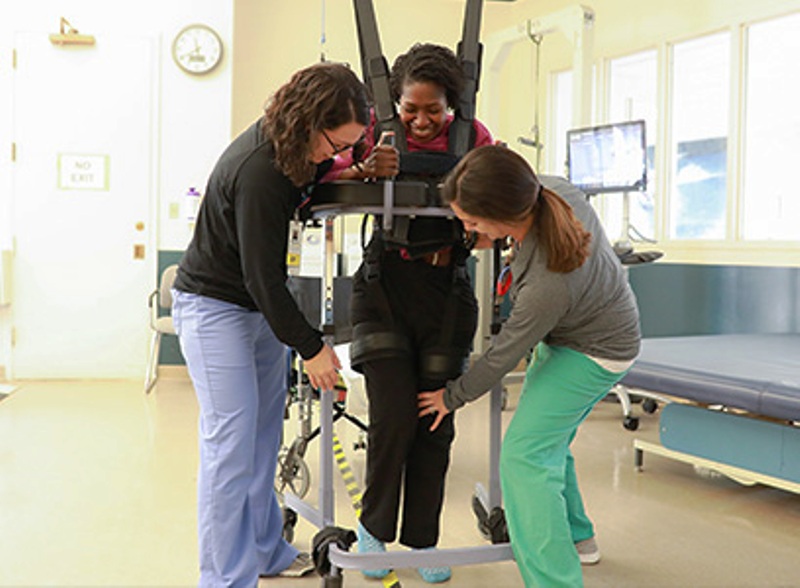Why Choose a Rehab Center
Depending on the therapeutic project, there are several types of rest and care homes to ensure patient care, including the rehabilitation center discussed in this blog. We will return to the other five later in our upcoming publications, including the convalescent home, specialty home, mental rest home, geriatric rest home, and palliative care units. For the time being, let’s focus on the recovery center and how it can assist you.
The patient is rehabilitated in a rehabilitation center.
Patients can be admitted to the hospital on a full-time or part-time basis.
The rehabilitation center is a facility that provides follow-up treatment and rehabilitation.
It could be a public or private healthcare facility (with or without a contract).
This sort of facility has two missions: to treat various disorders and to reintegrate the patient into the social, family, and professional milieu.
Pathologies found in this type of care facility include polyvalent pathologies such as orthopedic, rheumatological, and traumatological pathologies; and other pathologies such as neurology, traumatic, and spinal cord pathologies.
Who can go to a rehabilitation center?
The rehabilitation facility accepts and treats all patients suffering from illnesses that necessitate rehabilitation: – all able-bodied or dependent persons; – top-level athletes.
This type of center provides the following services: supervision and equipment.

The rehabilitation facility, thanks to its staff and sophisticated equipment, provides the following essential services: housing (single room or not), meals, hygiene, and medical treatment.
– Rehabilitation services: they are generally tailored to each individual case, regardless of disability.
Specialized personnel is in charge of the rehabilitation center.
The rehabilitation facility, thanks to its staff and sophisticated equipment, provides the following essential services: housing (single room or not), meals, hygiene, and medical treatment.
Here is a list of the medical and paramedical professionals who work at the rehabilitation center:
Management teams
|
Medical team |
Paramedical team |
Rehabilitators/specialists |
|---|---|---|
|
General practitioner |
Social worker |
Masseurs/physiotherapists |
|
Pharmacist |
Nurses |
Therapists |
|
Dietician |
Hospital agents |
Hydrotherapy rehabilitation agents |
|
Radiologist |
Care supervisors |
Occupational therapists |
|
Caregivers |
Speech therapists |
|
|
Orthoprosthetists |
||
|
Neuropsychologists. |
Not to mention the administrative staff in charge of paperwork and patient care.
Rehabilitation center: specialized means and equipment
The rehabilitation center contains cutting-edge technology and equipment that is overseen by specialized and diverse specialists.
Here is a table summarizing these many methods:
Adapted equipment for a re-education institution
|
Type of rehabilitation |
Équipement |
|---|
|
Traumatology orthopedics |
Rehabilitation of the locomotor system after accidental injuries (bones). |
– Massage and mobilization boxes, |
|---|---|---|
|
Occupational therapy |
Rehabilitation through motor activity. |
– electrotherapy (muscular electrical activity), |
|
Speech therapy |
Rehabilitation of language and communication disorders and swallowing disorders. |
– isokinetic: a method of quantitative evaluation and re-education of muscular strength and motor functions, the movements on the equipment are done at a constant speed, |
|
Neuropsychology |
Allows the evaluation of different functions: – praxis (gestural activity), – memory (attention, intellectual efficiency) – gnosis (perceptions), – behavioral problems. |
– specialized gymnasiums, – in some rehabilitation centers: marine kinebalneotherapy (working pool, hydromassage, jet shower, etc.) |
Formalities for coverage at a rehabilitation center
If you are discharged from a hospital, you do not need to contact your health insurance company for payment; the transfer is handled directly by administrative services.
If, on the other hand, you are traveling to a follow-up care facility from your home, you will require a doctor’s request for prior permission and the social security agreement.
Be cautious, as delays might be lengthy.
The daily cost for a rehabilitation institution.
The rehabilitation center might be either public or private (private or not).
The daily charge includes lodging, meals, and care.
If the establishment is under the agreement a portion of the cost is covered by health insurance; the remainder is paid by the resident or complementary health insurance if the resident has one.
If the institution is not covered by a convention, all expenditures are borne by the establishment.






[…] Why Choose a Rehab Center; […]
[…] Why Choose a Rehab Center; […]
[…] Why Choose a Rehab Center; […]
[…] – Why Choose a Rehab Center; […]
[…] – Why Choose a Rehab Center; […]
[…] – Why Choose a Rehab Center; […]
[…] – Why Choose a Rehab Center; […]
[…] – Why Choose a Rehab Center; […]
[…] – Why Choose a Rehab Center; […]